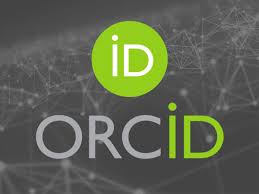Promesa de la inteligencia artificial en el tratamiento de la demencia
Palabras clave:
inteligencia artificial, demencia, diagnóstico temprano, tratamiento personalizado, ética, salud digitalResumen
La demencia es una enfermedad neurodegenerativa que afecta a millones de personas en todo el mundo. La inteligencia artificial ha emergido como una herramienta prometedora para mejorar el manejo de numerosas entidades médicas. El objetivo de este artículo es presentar una visión crítica y equilibrada sobre el papel de la inteligencia artificial en el tratamiento de la demencia. El deterioro cognitivo progresivo que caracteriza a la demencia exige soluciones innovadoras, y aquí esta herramienta se presenta como aliada clave. Su capacidad para procesar grandes volúmenes de datos clínicos y neuro imagenológicos permite identificar patrones ocultos, y facilita un diagnóstico más temprano y preciso. Además, los algoritmos de aprendizaje automático pueden personalizar terapias que optimizan la respuesta terapéutica y mejoran la calidad de vida de los pacientes. Sin embargo, su implementación requiere rigor científico y validación clínica robusta. En conclusión, la inteligencia artificial representa un avance paradigmático en el manejo de la demencia, ofrece herramientas para una medicina más predictiva y personalizada. La integración de estas tecnologías de forma ética y con basamento en evidencia, podrá mitigar el impacto de esta enfermedad en millones de personas.
Descargas
Citas
1. Organización Mundial de la Salud. Demencia [Internet]. Ginebra: OMS; 2023 [Acceso: 15/06/25]. Disponible en: https://www.who.int/es/news-room/fact-sheets/detail/dementia
2. Farina N, Turana Y, Theresia I. Modifiable risk factors for dementia in Indonesia: Results from STRiDE project. Neurology Asia. 2023 [Acceso: 15/06/25]; 28(4): 1009-1017. Disponible en: https://pearl.plymouth.ac.uk/pms-research/818
3. Shin J. Dementia Epidemiology Fact Sheet 2022. [Internet]. Annals of Rehabilitation Medicine. 2022[Acceso: 15/06/25], 46(2):53-59. Disponible en: https://www.semanticscholar.org/paper/41c6525686cdce3e3bfb1ecd47af3527d0613
4. Javaid S, Giebel C, Khan MAB, Hashim MJ. Epidemiology of Alzheimer’s disease and other dementias: rising global burden and forecasted trends. F1000Research. 2021[Acceso: 15/06/25]; 10:425. [Acceso: 15/06/25].Disponible en: https://f1000research.com/articles/10-425/v1
5. Gustavsson A, Norton N, Fast T, Frölich L. Global estimates on the number of persons across the Alzheimer's disease continuum. Alzheimer Dement. 2023[Acceso: 15/06/25]; 19(2):158-670. Disponible en: https://alz-journals.onlinelibrary.wiley.com/doi/abs/10.1002/alz.12694
6. Miller O. Dementia in Europe Yearbook 2022: Employment and Related Social Protection for People with Dementia and Their Carers. US Neurology. 1 Edición. Alzheimer Europa; 2023[Acceso: 15/06/25]. Disponible en: https://touchneurology.com/alzheimers-disease-dementia/journal-articles/dementia-in-europe-yearbook-2022-employment-and-related-social-protection-for-people-with-dementia-and-their-carers/
7. Huang Y, Li X, Liu Z, Huo J, Guo J, Chen Y, et al. Projections of the economic burden of care for individuals with dementia in mainland China from 2010 to 2050. [Internet]. PLoS ONE. 2022[Acceso: 15/06/25]; 17(2):e0263077. Disponible en: https://journals.plos.org/plosone/article?id=10.1371/journal.pone.0263077
8. Tahami Monfared AA, Phan NTN, Pearson I. A systematic review of clinical practice guidelines for Alzheimer's disease and strategies for future advancements. Neurol Ther. 2023[Acceso: 15/06/25]; 12(4): 1257-1284. Disponible en: https://link.springer.com/article/10.1007/s40120-023-00504-6
9. Canady VA. FDA approves new treatment for Alzheimer's disease. Mental Health Weekly. 2023[Acceso: 15/06/25]; 33(3): 6-7. Disponible en: https://onlinelibrary.wiley.com/doi/abs/10.1002/mhw.33505
10.Sahu M, Sahu H, Gupta P, Kumari S, Sahu S, Kumari A. Chapter Three - Artificial Intelligence and Machine Learning in Precision Medicine: A Paradigm Shift in Big Data Analysis. [Internet]. En: Teplow DB, editor. Progress in Molecular Biology and Translational Science. Academic Press. 2022[Acceso: 15/06/25]; 190(1): 57-100. Disponible en: http://www.sciencedirect.com/science/article/pii/S1876162322000078.
11.Wang H, Jin Q, Li S, Liu S, Wang M, Song Z. A comprehensive survey on deep active learning and its applications in medical image analysis. [Internet]. ArXiv. 2023 [Acceso: 15/06/25]:2310.14230v3. Disponible en: https://arxiv.org/abs/2310.14230
12. Ayus I, Azad C. Recent Advances in Multimodal Machine Learning for Parkinson's disease Diagnosis: A Comprehensive Review. 2023 2nd International Conference on Ambient Intelligence in Health Care (ICAIHC). [Internet]. 2023. [Acceso: 15/06/25]. Disponible en: https://ieeexplore.ieee.org/document/10431435/
13. Thatere A, Verma P, Reddy KTV, Umate LV. A Short Survey on Alzheimer's Disease: Recent Diagnosis and Obstacles. [Internet]. 2023 1st DMIHER International Conference on Artificial Intelligence in Education and Industry 4.0 (IDICAIEI). 2023 [Acceso: 15/06/25]. Disponible en: https://ieeexplore.ieee.org/document/10406885/
14. Mijwil MM, Al-Mistarehi AH, Abotaleb M, El-kenawy E-SM, Ibrahim A, Abdelhamid AA, et al. From Pixels to Diagnoses: Deep Learning's Impact on Medical Image Processing-A Survey. [Internet]. Wasit Journal of Computer and Mathematics Science. 2023 [Acceso: 15/06/25]; 2(3):8-14. Disponible en: https://www.semanticscholar.org/paper/47ef8d11d546169b23a8806e3d91ba6e26f0ffa2
15. Kaggie J. Addressing machine learning challenges with microcomputing and federated learning. [Internet]. The Lancet Digital Health. 2024[Acceso: 15/06/25] 6(2): e88-e89. Disponible en: https://doi.org/10.1016/s2589-7500(23)00266-2
16. Gharat V. The evolution of healthcare: embracing artificial intelligence in medicine. [Internet]. National Journal of Medical Research. 2023 [Acceso: 15/06/25]; 13 (3):66-67. Disponible en: https://www.semanticscholar.org/paper/6233158a603e1b4d2fb3edf663defe255557a11e
17. Dave M, Patel A. Artificial Intelligence in Healthcare and education. British Dental Journal. 2023 [Acceso: 15/06/25]; 234: 761-764. Disponible en: https://www.resaerchgate.net/publication/371045022_Artificial_intelligence:in_healthcare_and_education.
18. Adiga R, Biswas T, Shyam P. Applications of Deep Learning and Machine Learning in Computational Medicine. Journal of Biochemical Technology. 2023. [Acceso: 15/06/25]; 14(1):1-6. Disponible en: https://www.semanticscholar.org/paper/3856c3ff83cd49f1292f8b1eaeb6a591615f5972
19. Tipton K, Leas B, Flores E, Jepson C, Aysola J, Cohen JB, et al. Impact of Healthcare Algorithms on Racial and Ethnic Disparities in Health and Healthcare. Rockville (MD). Agency for Healthcare Research and Quality. 2023 [Acceso: 15/0 6/25]; 24. EHC004. Disponible en: https://www.semanticscholar.org/paper/ca303ec5eefea94c4169090
20.Cary MP, Zink A, Wei S, Olson A, Yan M, Senior R, et al. Mitigating Racial And Ethnic Bias And Advancing Health Equity In Clinical Algorithms: A Scoping Review. [Internet]. Health Affairs. 2023[Acceso: 15/0 6/25]; 42 (10):1359-1368. Disponible en: https://www.healthaffairs.org/doi/10.1377/hlthaff.2023.00553
Descargas
Publicado
Cómo citar
Número
Sección
Licencia
Derechos de autor 2025 Mercedes Zamora Mallet, Ariagna Martínez Chile , Enrique Esteban Garcés, Ángel Manuel Santos Martínez

Esta obra está bajo una licencia internacional Creative Commons Atribución-NoComercial 4.0.










